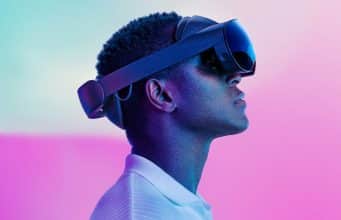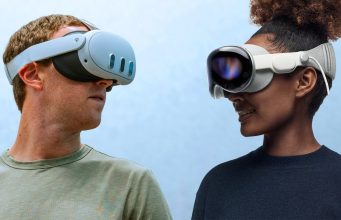Meta CTO Rebukes Report Claiming Cancellation of Quest Pro Line
According to a recent report from The Information, Meta is allegedly spinning down Quest Pro alongside a broader move to cancel the future ‘Pro’ line of XR hardware altogether. Meta CTO Andrew Bosworth says however, “don’t believe everything you read.”
Meta has reportedly stopped ordering new components for the Quest Pro from its suppliers, The Information maintains. While it’s thought Meta will continue selling its $1,000 Pro-branded mixed reality headset as long as there is enough stock, the report alleges the entire Pro line has been suspended, putting a second-generation Quest Pro distinctly out of the question.
Speaking in an Instagram Stories post yesterday, Bosworth rebukes the claim that a potential Quest Pro 2 has officially been cancelled for good, saying that his team is developing multiple prototypes in parallel for all of its projects. Notably, he doesn’t address whether it’s spinning down the current version of Quest Pro, however he implies that the report of Quest Pro 2’s demise was the result of a disgruntled employee whose project was cut.
Here’s Bosworth’s statement in full:
“I have to explain this every year. There is no Quest Pro 2 headset until we decide there is. What I mean by that is there are lots of prototype headsets—lots of them—all in development in parallel. Some of them, we say, “that’s not the right one,” and we shut it down. Some of them, we say, “that’s the right one,” and we spin it up. What you need to understand is, until it goes out the door, it doesn’t get the name. So, there might be a Quest Pro 2, there might not be. I’m not really telling you, but I will say don’t believe everything you read about what’s been stopped or started. A lot of times it comes from someone who’s unhappy their particular project got cut when there are other projects that did not get cut.”
Still, it’s clear there’s been some turbulence in how Quest Pro was handled from the get-go. Originally launched for $1,500 in October 2022, Meta decided only a few months later it would slash Quest Pro by $500, putting at its $1,000 price tag today. Meanwhile, Quest 2 has seen multiple price changes, ranging from $300 to $400 for the same 128GB variant.
Fluctuating prices aside, Quest Pro’s raison d’être has never really been clearly defined, as the company has nebulously pitched it to professionals as a would-be workstation. In practice, Quest Pro has been more of a developer kit for studios hoping to build consumer apps for the cheaper Quest 3, coming in Fall 2023 at $500. Meanwhile, Quest Pro users have reported a host of usability issues since launch, decidedly making it feel a little less ready for prime time than the company probably hoped.
Whatever the case, Quest Pro 2 would need a much clearer value proposition—provided whatever prototypes Meta has waiting in the wings also don’t also get cut.
Meta CTO Rebukes Report Claiming Cancellation of Quest Pro Line Read More »

